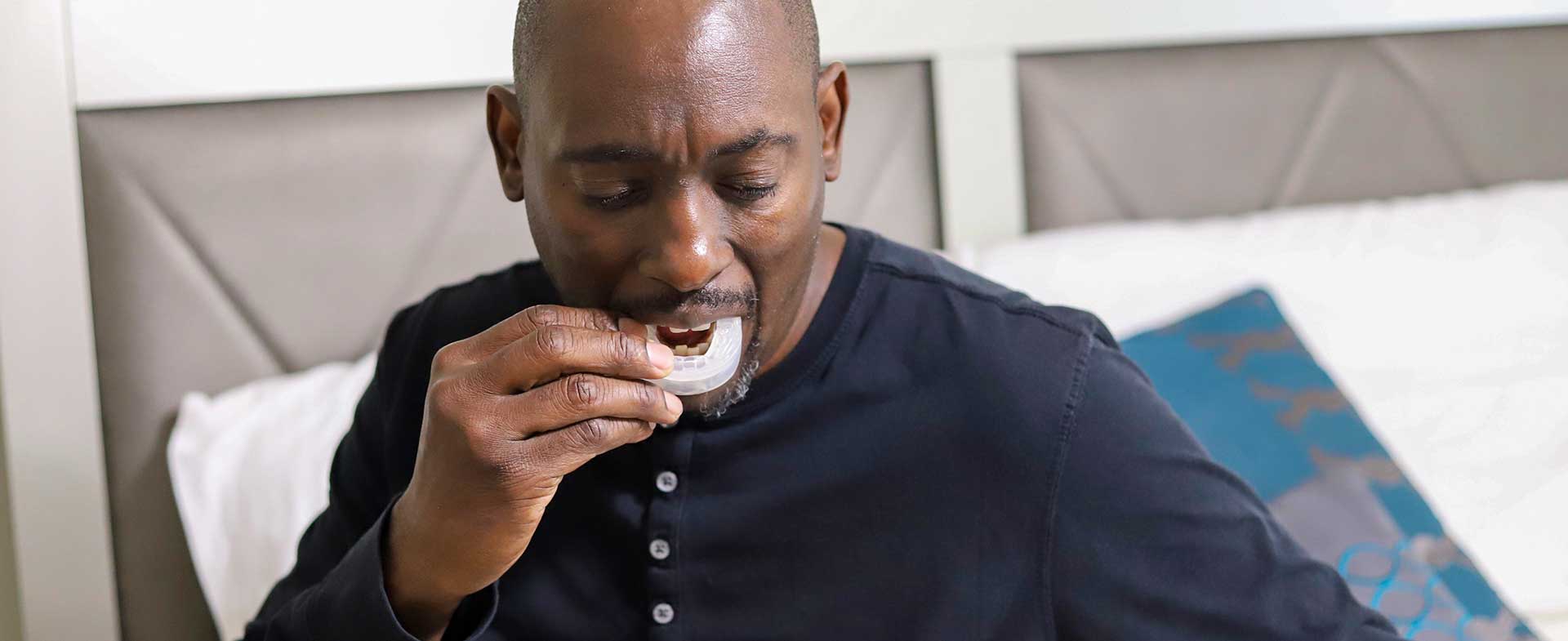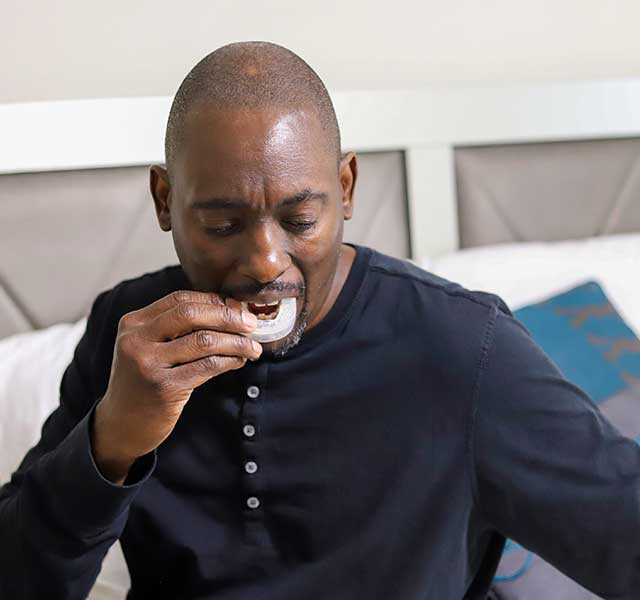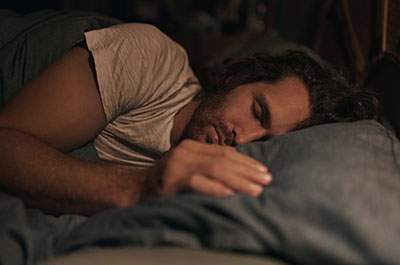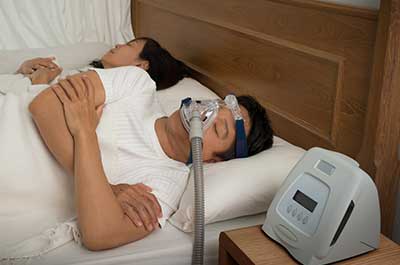Snoring may seem like a minor nuisance, but it can actually be a sign of obstructive sleep apnea (OSA), which occurs when the soft tissues of the upper airway collapse during sleep and cause you to stop breathing for short intervals of time. These pauses in breathing can result in poor sleep quality, frequent nighttime awakenings and urination, excessive daytime fatigue, headaches and decreased concentration.
“The most commonly physician-prescribed treatment for OSA is continuous positive airway pressure, commonly known as CPAP,” says Ravi Shah, M.D., an otolaryngologist at Henry Ford Health. “A CPAP machine delivers gentle air pressure during sleep through a face mask fitted to a person’s nose and/or mouth to keep the airway open and unobstructed.”
CPAP is highly effective and considered to be the gold standard treatment for OSA. But for some patients, a CPAP device is difficult to tolerate. In fact, between 30-40% of patients do not adhere to their prescribed CPAP regimens, according to a study by the National Institutes of Health.
Untreated OSA can contribute to severe health problems including high blood pressure, abnormal heart rhythms, depression and stroke. It has also been linked to fatigue-related car accidents and workplace injuries.
“Sleep apnea treatment is kind of like the saying, ‘you can’t fit a square peg into a round hole,’” says Dr. Shah. “You might be able to do it, but just not neatly or gently. The same goes for CPAP and sleep apnea treatments. Sleep apnea treatment isn’t ‘one size fits all.’ Our goal is to help you find a treatment that fits your goals and lifestyle.”
Here, Dr. Shah shares alternatives to CPAP.
1. Oral appliances
Just as there are dental professionals who specialize in orthodontics or dental implants, there are also dental professionals who can help with sleep apnea. Oral appliances, also called “mandibular advancement devices,” are specialized mouthguards that can help hold the tongue in place or ease the jaw forward, helping to keep your airway open while you sleep.
2. Positional therapy
For many people, sleep apnea worsens when sleeping on your back. Specially designed pillows, or devices that you wear while you sleep, can help keep you from lying on your back, reducing the need for a CPAP machine.
3. Physical therapy

Managing Sleep Apnea
Book now
Sometimes, what you do during the day can affect how your throat relaxes when you sleep. Physical therapy with a speech language pathologist can help strengthen your tongue and throat muscles. Electric muscle stimulation devices, such as eXciteOSA, may also help strengthen these muscles.
4. Soft tissue surgery or oral-maxillofacial surgery
In some cases, your own anatomy could be causing your sleep apnea. If you have very big tonsils, a floppy soft palate, a tongue that blocks part of your throat, or jaw bones that are too small for your facial structure, otolaryngologists or oral surgeons may be able to help you breathe more easily with a surgery suited to your anatomical needs. In some cases, surgery can help you tolerate CPAP better, and in other cases, surgery may completely treat your sleep apnea.
5. Weight loss
One of the major risk factors for sleep apnea is obesity. Studies show that exercise can help alleviate symptoms of sleep apnea, and in some cases, weight loss can even cure sleep apnea.
6. Inspire nerve stimulator
“For patients who can’t tolerate CPAP, the Inspire device can be a game changer,” says Dr. Shah. “It is an FDA-approved, surgically implanted nerve stimulator that works from within the body. The device senses when you breathe and stimulates key muscles to keep your airway open while you sleep. There is only one FDA-approved implanted nerve stimulator for obstructive sleep apnea available in the United States. However, there are other devices in clinical trials that will likely become available in the coming years.”
And in the future, there may even be medications that can help certain patients with sleep apnea. In the meantime, don’t hesitate to reach out to your provider to learn about additional treatment options if a CPAP doesn’t work for you. They can help you navigate the options and develop a treatment plan that’s best suited to your individual needs.
Reviewed by Ravi Shah, M.D., an otolaryngologist who focuses on sleep apnea surgery and sees patients at Henry Ford Medical Center – Fairlane.



